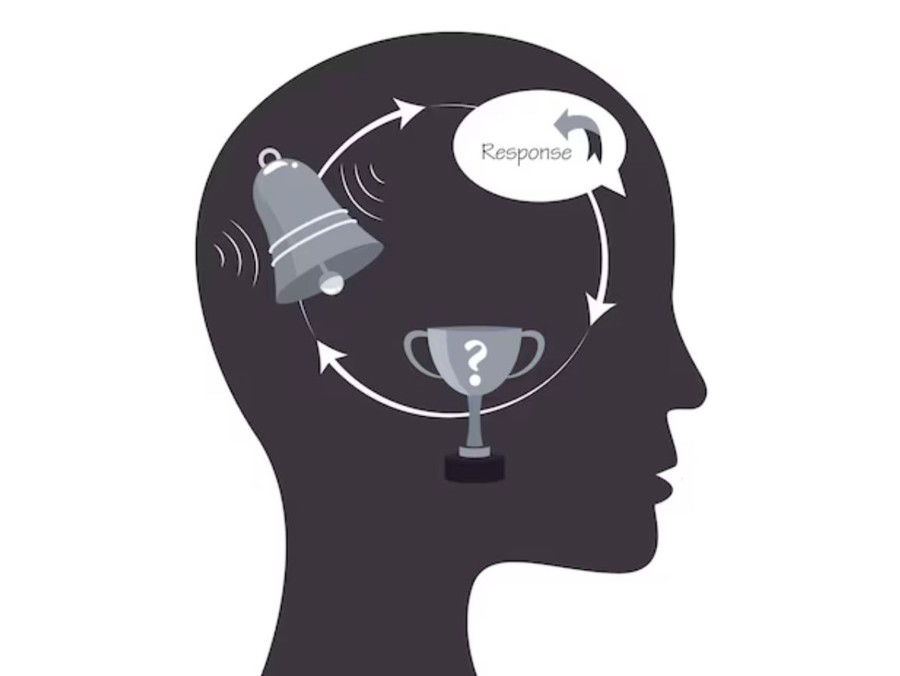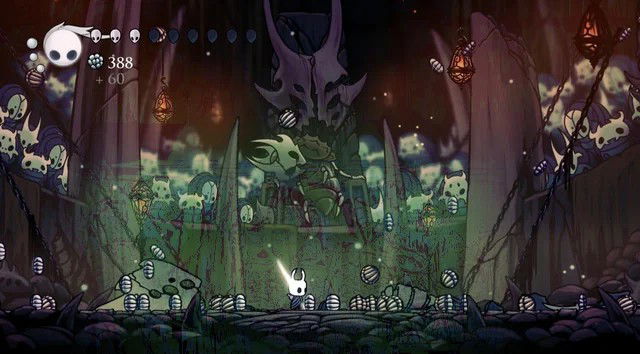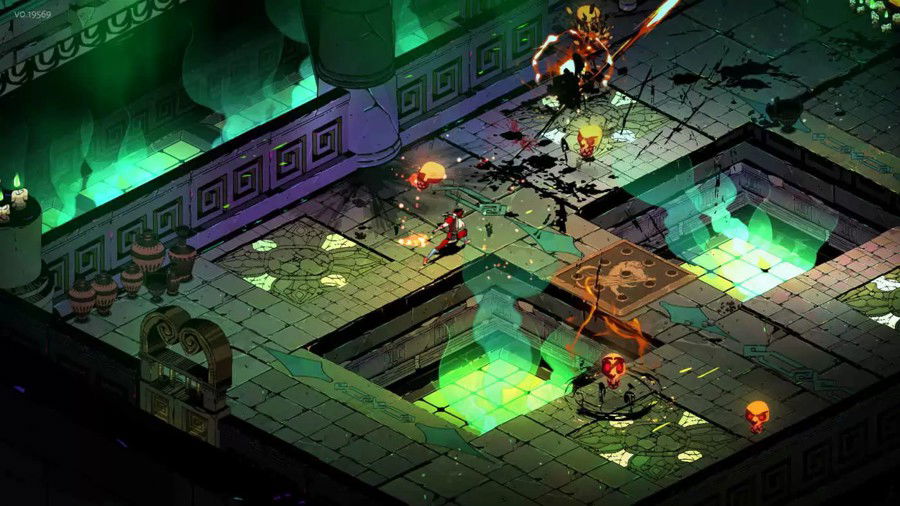Games and Science
Video games are one of the most popular forms of entertainment in the 21st century. They have carved out a unique space in our lives; whether through epic action battles, the thoughtful narratives of an RPG, the high-paced intensity of shooters, or the meticulous building of a block-based virtual world, games captivate us in unique and magical ways.
But why do we love playing video games so much? Our attraction goes far beyond simple leisure. The answer lies in the psychological and social mechanisms that explain why we connect so deeply with digital worlds.
In this article, we’ll look beyond the graphics and captivating stories, exploring these elements through Human Behavior Analysis, Game Theory, and other scientific fields that reveal the secrets behind our love for games.

The Psychology of Games: How Behavior Shapes Our Choices
Humans are driven by reward systems. In video games, every achievement - whether defeating a boss, completing a mission, or unlocking a trophy - activates neural circuits linked to dopamine, a neurotransmitter associated with pleasure and motivation. Games reinforce actions through immediate feedback, such as points, rankings, or progression. This action-reward cycle keeps players engaged, even in seemingly frustrating challenges like those in Dark Souls or Celeste.
Behavior Analysis (BA), a branch of psychology focused on the relationship between environment, actions, and consequences, explains through its pillars - classical conditioning (stimulus association) and operant conditioning (behaviors shaped by rewards and punishments) - how games keep us engaged.
Behaviorism, also known as the Behaviorist Approach, is a psychological perspective that studies human and animal behavior, focusing on observing and analyzing actions and reactions to stimuli. Its primary goal is to understand how behavior is learned and modified through processes such as conditioning and reinforcement.

In Game Theory, there are Four Pillars of Behavior present in games:
- Positive Reinforcement: Rewards like points, trophies, or rare items (e.g., legendary weapons) encourage the repetition of actions.
- Intermittent Reinforcement: Unpredictable systems, such as loot boxes, trigger the same “reward-seeking compulsion” seen in slot machines.
- Negative Punishment: Losing resources (e.g., lives in Dark Souls) forces adaptation and new strategies.
- Extinction: The removal of rewards (e.g., updates that reduce payouts) can lead to frustration or abandonment.
These pillars simulate social dilemmas like cooperation versus competition. In games like Fortnite or Among Us, players must make strategic decisions involving trust, betrayal, and alliances, mirroring real-world dynamics such as political negotiations or managing scarce resources. Such scenarios allow for the exploration of social behaviors such as altruism and selfishness in controlled environments, offering insight into how we resolve conflicts in real life.

Neuroscience and Games: Dopamine, Flow, and Immersion
While behavior analysis explains the “how,” neuroscience reveals the physiological “why” behind gaming. When we overcome a challenge, our brain releases dopamine. Games like PUBG or Valorant are masters at activating this reward system, creating addictive “just one more try” loops.
Another crucial concept is the flow state, theorized by Mihaly Csikszentmihalyi. Games like Hollow Knight or Celeste balance challenge and skill so well that players enter a deep state of immersion where time seems to disappear.

Immersion and Escapism: Parallel Worlds as a Refuge
Games like The Legend of Zelda or Red Dead Redemption 2 create worlds so rich in detail that they allow players to experience alternate identities and explore emotions in a safe space. This “escape” is not just entertainment but also a way to cope with everyday anxieties such as social pressure or fear of failure. Furthermore, Game Theory shows how interactive storytelling fulfills the human need for control over one’s environment, something often absent in real life.

The Game Design That Hooks Us
Game designers use principles of human Behaviorism to keep players immersed in digital worlds:
- Structured Progression: Level systems (e.g., World of Warcraft) and gradual challenges create a sense of continuous growth.
- Immediate Feedback: Sounds, vibrations, and visual effects (e.g., the “Headshot!” in Call of Duty) instantly reinforce actions.
- Socialization: Leaderboards, MMORPG guilds, and multiplayer modes tap into our need for social connection and competition.
Examples of Genres and Their “Behavioral Traps”
- Battle Royales (COD, Valorant): Offer quick, random rewards (items on the map) while keeping adrenaline high.
- Simulation Games (Animal Crossing): Daily routines and tasks create comforting habits.
- Roguelikes (Hades): Frequent deaths are offset by progressive upgrades, encouraging repetition.

Learning and Overcoming: Games as Cognitive Tools
Video games require skills like problem-solving, motor coordination, and critical thinking. These are among the reasons games are so captivating: they turn learning into play.
For example, games like Portal teach physics in a fun way, Civilization simulates geopolitical strategies, and Cities: Skylines teaches urban planning. Unlike real life, games allow failure without real consequences, encouraging experimentation.

When Games Transform Real Life
In education, platforms like Duolingo use streaks and XP to make language learning engaging and addictive. In health, apps like Zombies, Run! turn jogging into post-apocalyptic missions. Even in therapy, VR games assist in treating phobias.

Social Connection: Communities Beyond the Screen
Multiplayer games like League of Legends or Animal Crossing are not only about competition but also about building relationships. Online games can replicate (and sometimes improve) social interactions, offering spaces for teamwork, belonging, and acceptance. In a world facing challenges like social isolation and polarization, virtual environments can serve as safe havens for authentic human connection.

The Dark Side: Addiction and Manipulation
Not everything in gaming is positive. Common mechanics like loot boxes (criticized in FIFA Ultimate Team) and pay-to-win systems (Diablo Immortal) exploit psychological vulnerabilities, especially among teens and young adults. In 2018, the World Health Organization (WHO) recognized gaming disorder as a mental health condition, warning about excessive gaming hours and the neglect of responsibilities.

Playing Consciously: Balance, Enjoyment, and Health
To enjoy the benefits of gaming without falling into traps, it’s important to remember that the brain, like any muscle, can become addicted and overworked. Setting boundaries can be a healthy path to a sound mind and body:
- Set limits: Use apps or in-platform analytics to monitor your playtime.
- Favor single-player games: Games with finite narratives (e.g., God of War, Assassin’s Creed, The Last of Us) avoid endless gameplay loops.
- Seek healthy communities: Look for friendships centered on fun, not just competition, and engage in conversations outside of games to strengthen social and family bonds, bringing real-world benefits.

Conclusion: Why Games Are the Art of the 21st Century
Gaming is also a scientific and philosophical act. Our passion for video games is not a shallow pastime but a manifestation of deep human needs: control, learning, socialization, and self-expression. Behavior Analysis and Game Theory show that when we play, we’re training skills, exploring ethics, and understanding ourselves better.
Video games are an experience that blends art, psychology, and technology. By understanding the mechanisms behind them, whether rewards through behaviorism, neurochemical dopamine, or the pursuit of flow, we can choose games that challenge, inspire, and connect us without losing self-control.
As Shigeru Miyamoto says: "A well-made game is one that you finish with a smile, not exhaustion."















— コメント 0
, 反応 1
最初にコメントする